Full stack developers are the versatile professionals who handle both the front end and back end of web applications. They ensure that the user experience is smooth while also managing server-side logic, databases, and application integration.
Full stack development skills encompass a wide range of technologies and proficiencies. These include knowledge of front end technologies like HTML, CSS, and JavaScript, as well as back end languages such as Python, Ruby, or Java. Additionally, skills in database management, version control, and problem-solving are crucial for success in this role.
Candidates can write these abilities in their resumes, but you can’t verify them without on-the-job Full Stack Developer skill tests.
In this post, we will explore 8 essential Full Stack Developer skills, 9 secondary skills and how to assess them so you can make informed hiring decisions.
Table of contents
8 fundamental Full Stack Developer skills and traits
The best skills for Full Stack Developers include HTML/CSS, JavaScript, Backend Languages, Database Management, Version Control, RESTful APIs, Web Architecture and Debugging/Testing.
Let’s dive into the details by examining the 8 essential skills of a Full Stack Developer.
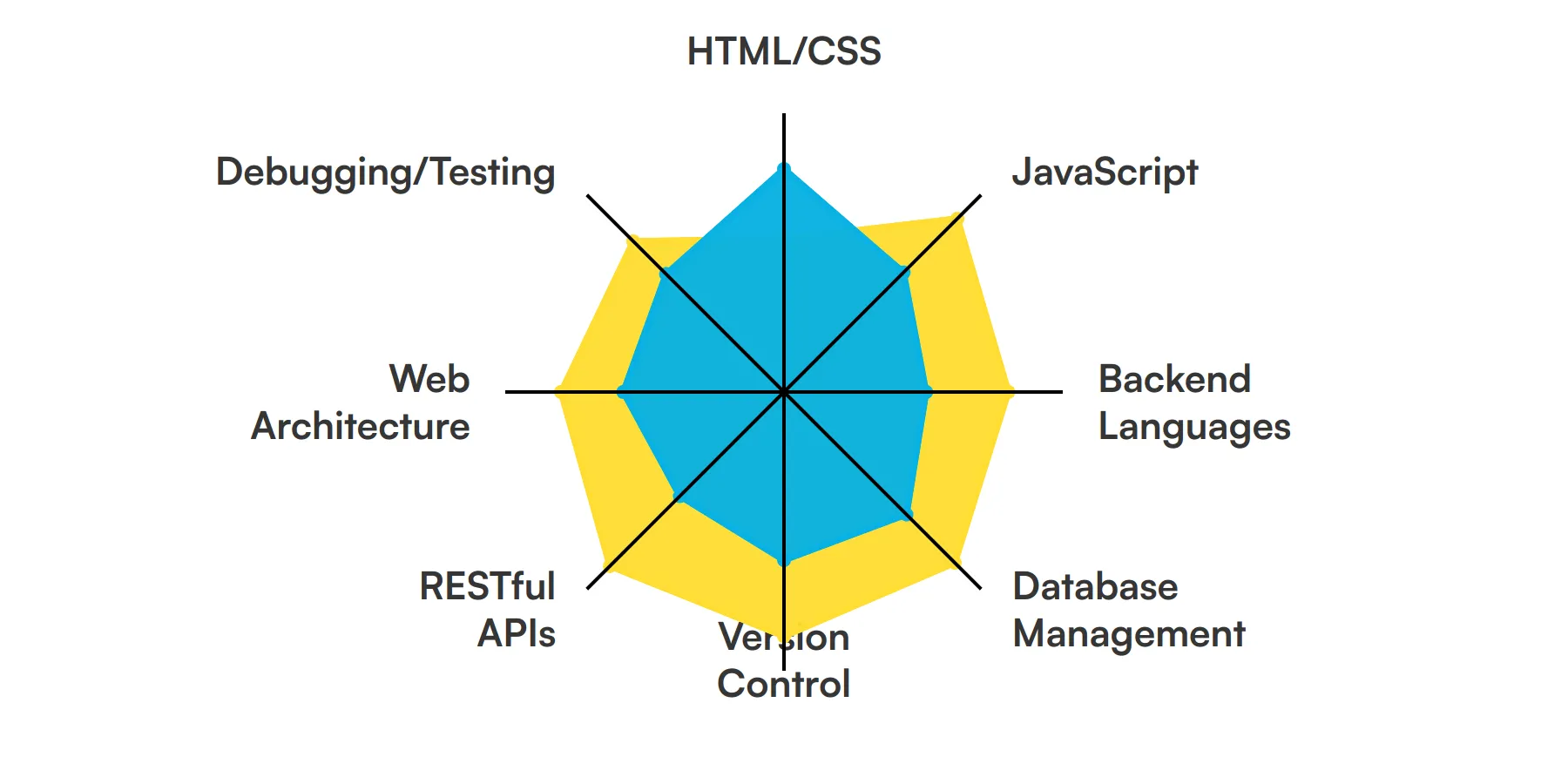
HTML/CSS
HTML and CSS are the backbone of web development, allowing full stack developers to structure and style web pages. A full stack developer uses these languages to ensure that the site's interface is accessible and aesthetically pleasing.
For more insights, check out our guide to writing a HTML5 Developer Job Description.
JavaScript
JavaScript is imperative for interactive web applications. Full stack developers utilize JavaScript to create dynamic content that improves user experience and client-side scripts.
Backend Languages
Knowledge of at least one server-side programming language such as Python, Ruby, or Java is necessary for full stack developers to handle database operations, user authentication, and application logic.
Check out our guide for a comprehensive list of interview questions.
Database Management
Full stack developers must be proficient in database technologies like MySQL, MongoDB, or PostgreSQL to store, manipulate, and retrieve data efficiently.
Version Control
Version control systems like Git help full stack developers manage changes to the project codebase, facilitating collaboration and tracking each modification.
RESTful APIs
Understanding how to create and consume RESTful services is crucial for full stack developers to connect client-side and server-side technologies seamlessly.
Web Architecture
Comprehension of basic algorithms, data structures, and system design is essential for full stack developers to build complex software applications effectively.
For more insights, check out our guide to writing a Web Developer Job Description.
Debugging/Testing
Full stack developers must be adept at debugging and automated testing to ensure the reliability and performance of applications across different platforms and devices.
9 secondary Full Stack Developer skills and traits
The best skills for Full Stack Developers include UI/UX Design, Cloud Services, Security Practices, Agile Methodologies, Responsive Design, Soft Skills, Continuous Integration, Performance Optimization and SEO Fundamentals.
Let’s dive into the details by examining the 9 secondary skills of a Full Stack Developer.
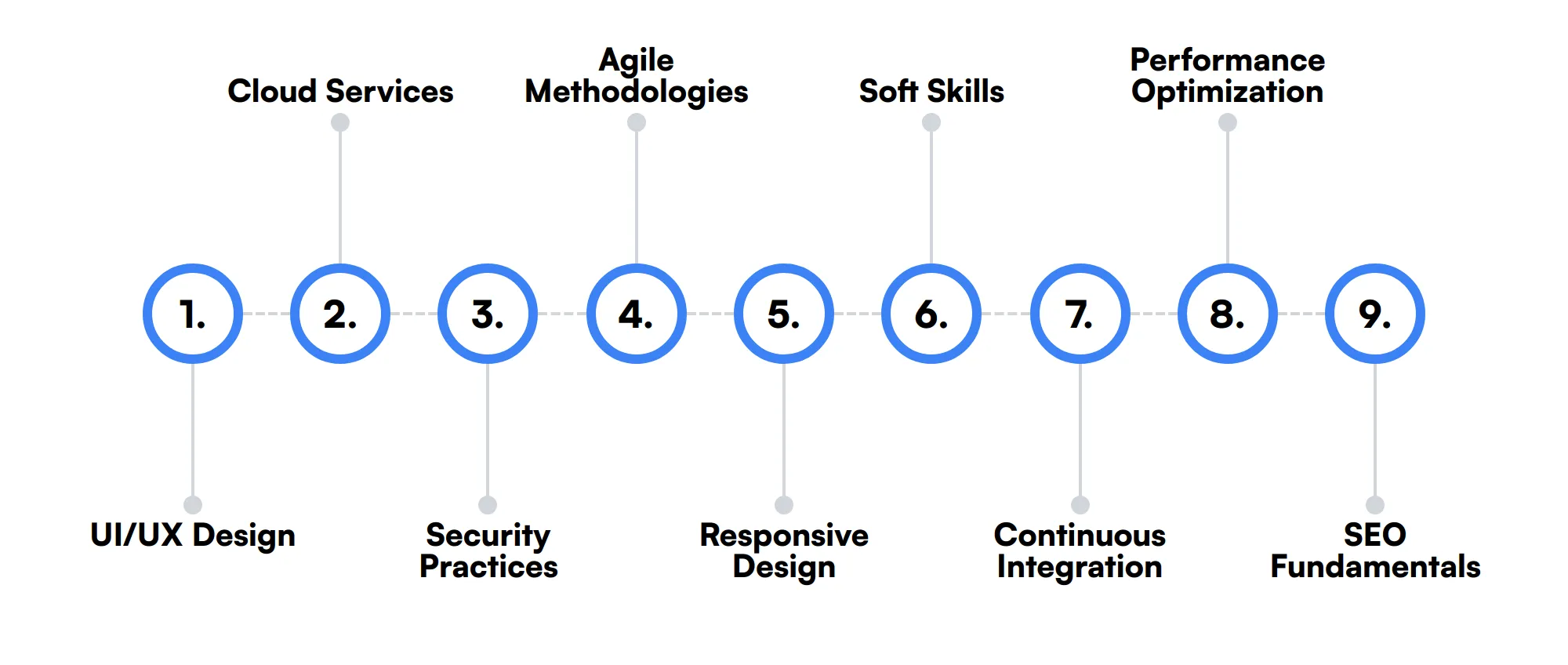
UI/UX Design
While not primarily their role, having a grasp of user interface and user experience design can help full stack developers in crafting intuitive and engaging applications.
Cloud Services
Familiarity with cloud platforms like AWS, Azure, or Google Cloud enables full stack developers to deploy scalable and secure applications in the cloud.
Security Practices
Security is paramount; thus, full stack developers need to implement modern security practices to protect data and prevent vulnerabilities.
Agile Methodologies
Experience with agile development methodologies can aid full stack developers in managing projects efficiently and adapting to changing requirements.
Responsive Design
Creating responsive designs ensures that web applications operate smoothly across various devices, which is a valuable skill for full stack developers.
Soft Skills
Communication, problem-solving, and time management are key for full stack developers to effectively collaborate in team settings and meet project deadlines.
Continuous Integration
Knowledge of continuous integration/continuous deployment (CI/CD) processes can help full stack developers streamline development cycles and improve code quality.
Performance Optimization
Full stack developers should be able to analyze and improve application performance to enhance user experience and reduce server loads.
SEO Fundamentals
Understanding the basics of Search Engine Optimization can assist full stack developers in increasing the visibility and ranking of web pages.
How to assess Full Stack Developer skills and traits
Assessing the skills and traits of a Full Stack Developer can be a challenging task. It's not just about knowing the technologies but also about how well they can integrate and apply them. From HTML/CSS to JavaScript, backend languages, and database management, a Full Stack Developer must be proficient in a wide range of technologies.
Resumes and portfolios can give you a glimpse of a candidate's experience, but they don't always reflect their true capabilities. This is where skills-based assessments come into play. By using tools like Adaface on-the-job skill tests, you can significantly improve the quality of your hires and reduce screening time by 85%.
When assessing Full Stack Developers, it's important to evaluate their understanding of version control, RESTful APIs, web architecture, and their ability to debug and test code. These skills are essential for ensuring that they can handle the full spectrum of development tasks, from front-end design to back-end logic and database management.
Let’s look at how to assess Full Stack Developer skills with these 6 talent assessments.
HTML/ CSS Online Test
Our HTML/ CSS Online Test evaluates a candidate's ability to create web pages and style them using CSS.
The test assesses their understanding of core HTML tags, handling forms, and critical CSS concepts like the box model, Flexbox, and Grid. It also evaluates their ability to build responsive layouts and integrate custom fonts.
Successful candidates have an expert understanding of CSS layout techniques, responsiveness, and browser compatibility.
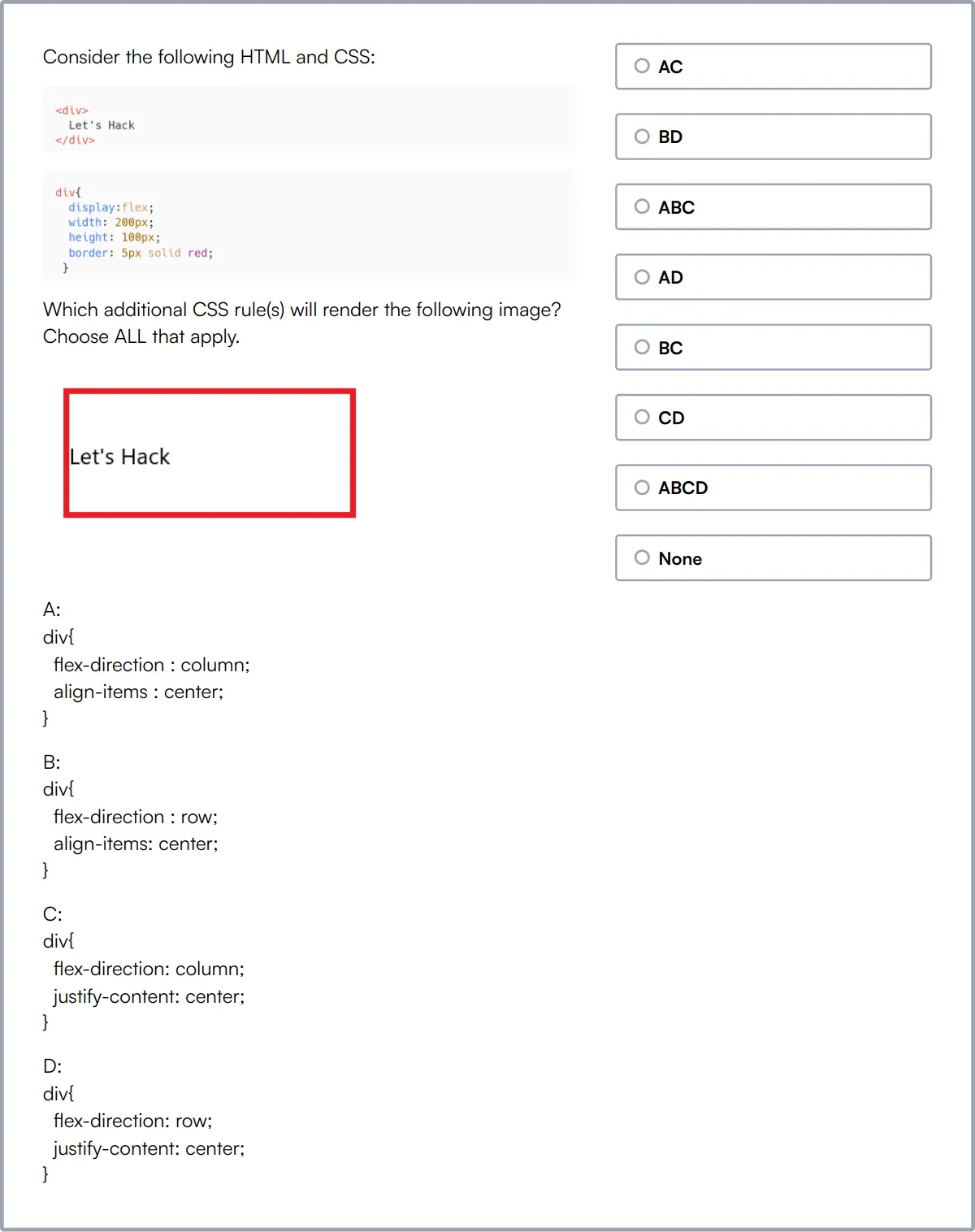
JavaScript Online Test
Our JavaScript Online Test gauges a candidate's proficiency in JavaScript fundamentals and their ability to manipulate the HTML DOM.
The test challenges a candidate’s knowledge of JavaScript basics, ES6 features, and asynchronous programming. It also assesses their ability to handle APIs and work with user data and JSON.
We offer a selection of JavaScript tests, including debugging and data structuring, so you can gauge various skill levels.
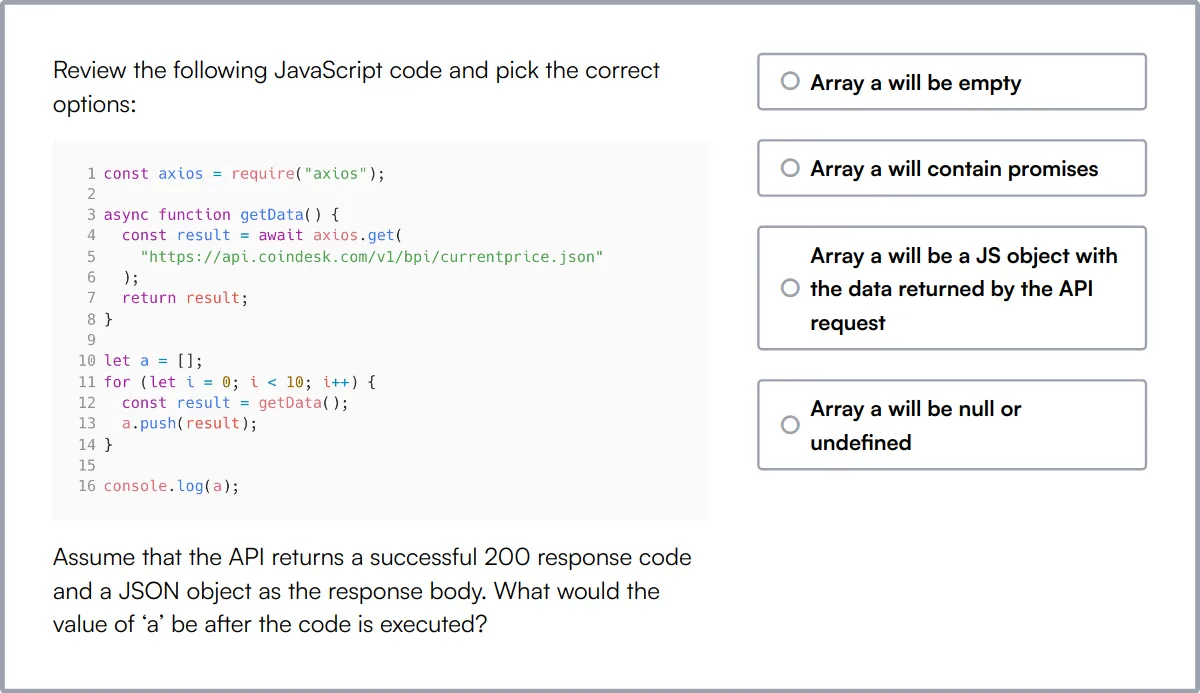
Backend Engineer Online Test
Our Backend Engineer Online Test evaluates a candidate's knowledge of backend development, including server-side logic, databases, and APIs.
The test assesses their proficiency in designing scalable architectures, writing efficient code, and implementing RESTful APIs. It also evaluates their ability to debug and optimize server-side code.
High-scoring candidates demonstrate strong skills in database design, API integration, and performance optimization.
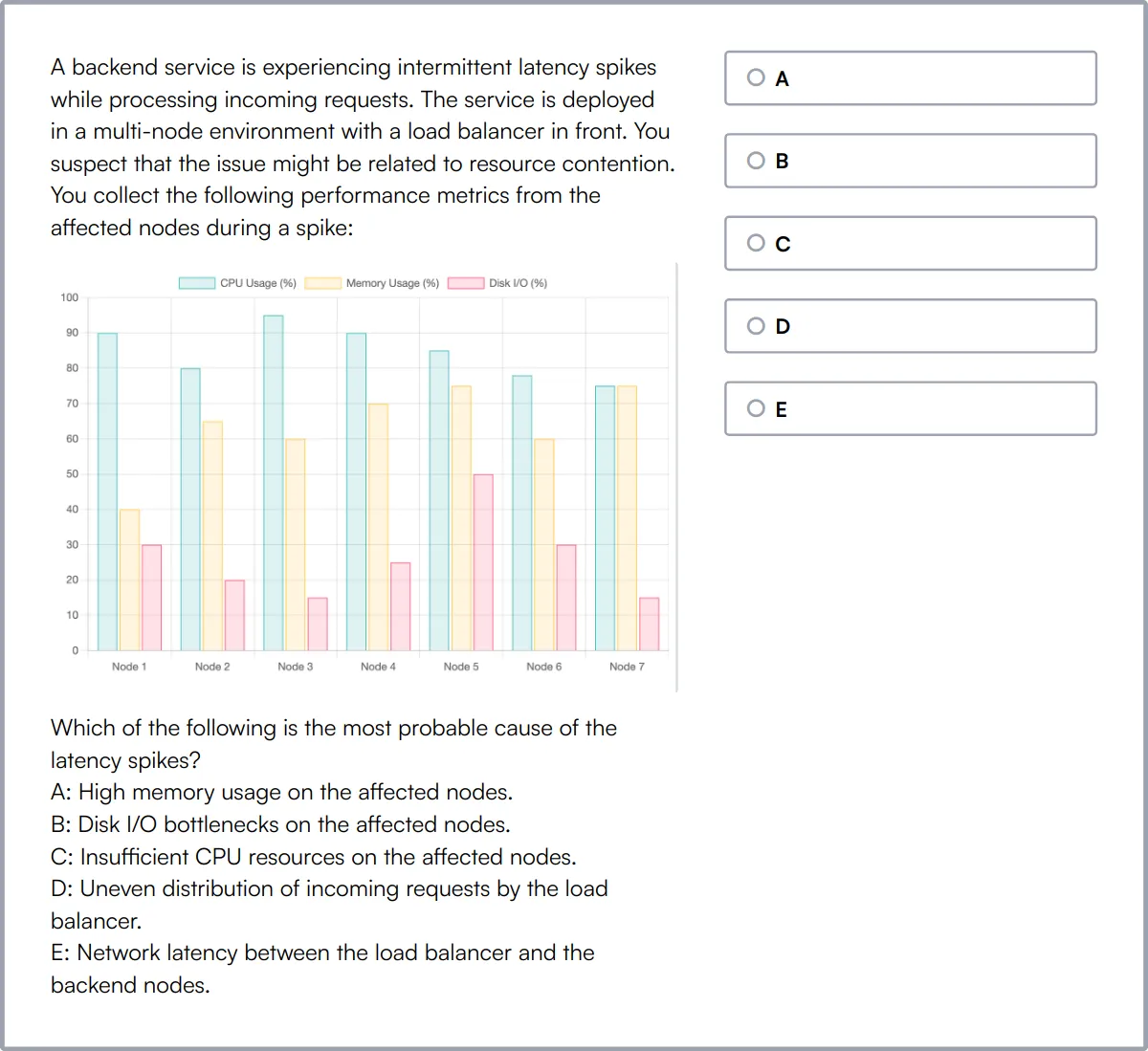
Data Modeling Skills Test
Our Data Modeling Skills Test evaluates a candidate's knowledge and abilities in database design and SQL.
The test assesses their understanding of data modeling, ER diagrams, normalization, and relational schema. It also evaluates their skills in data integrity, mapping, and transformation.
Successful candidates show proficiency in creating and managing complex database structures and ensuring data accuracy.
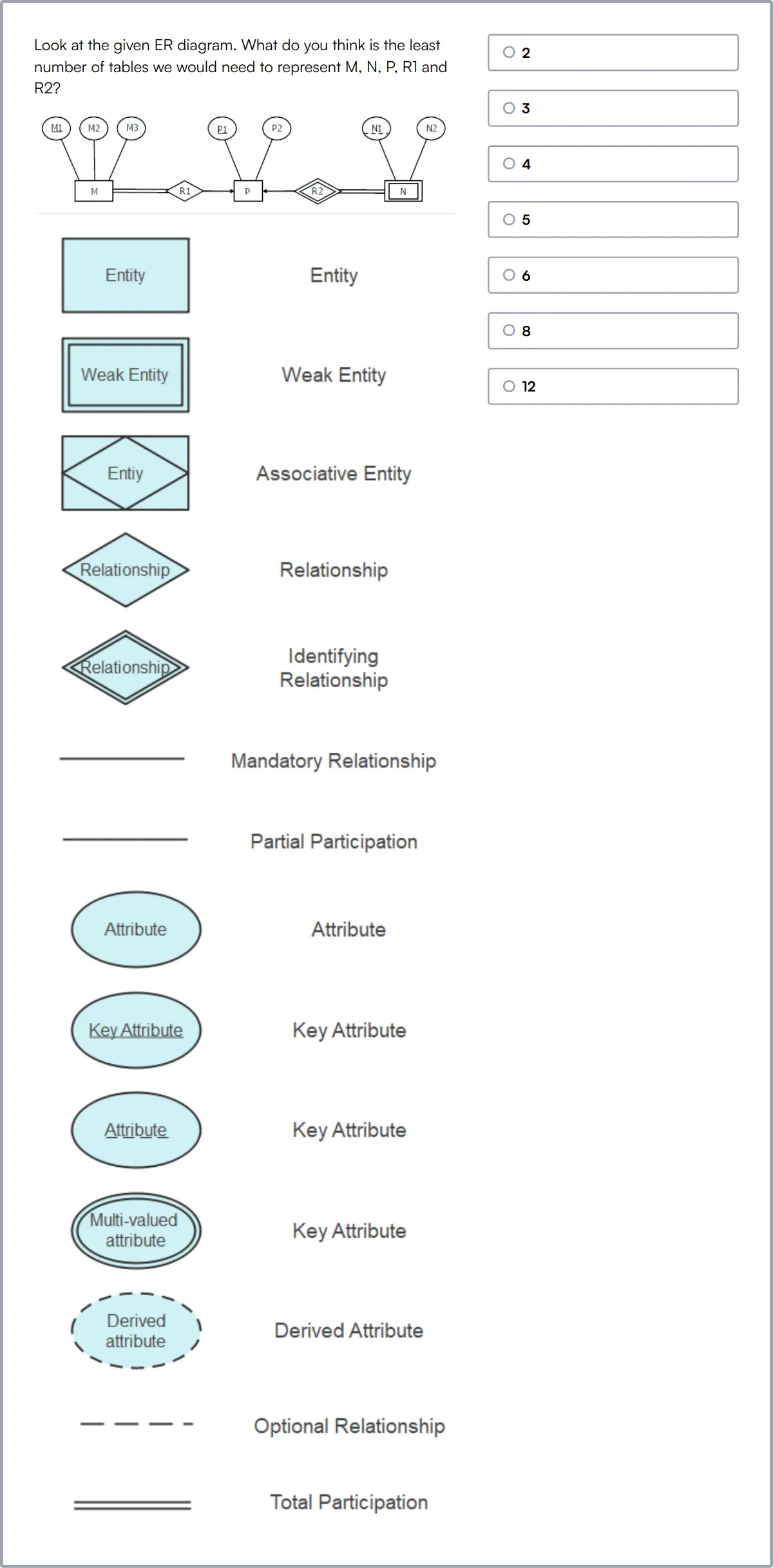
Git Online Test
Our Git Online Test evaluates a candidate's understanding of Git, a popular version control system.
The test assesses their knowledge of basic and advanced Git commands, conflict resolution, and managing remote repositories. It also evaluates their proficiency in using Git workflows and branching models.
Candidates who perform well demonstrate strong skills in version control and collaborative development.
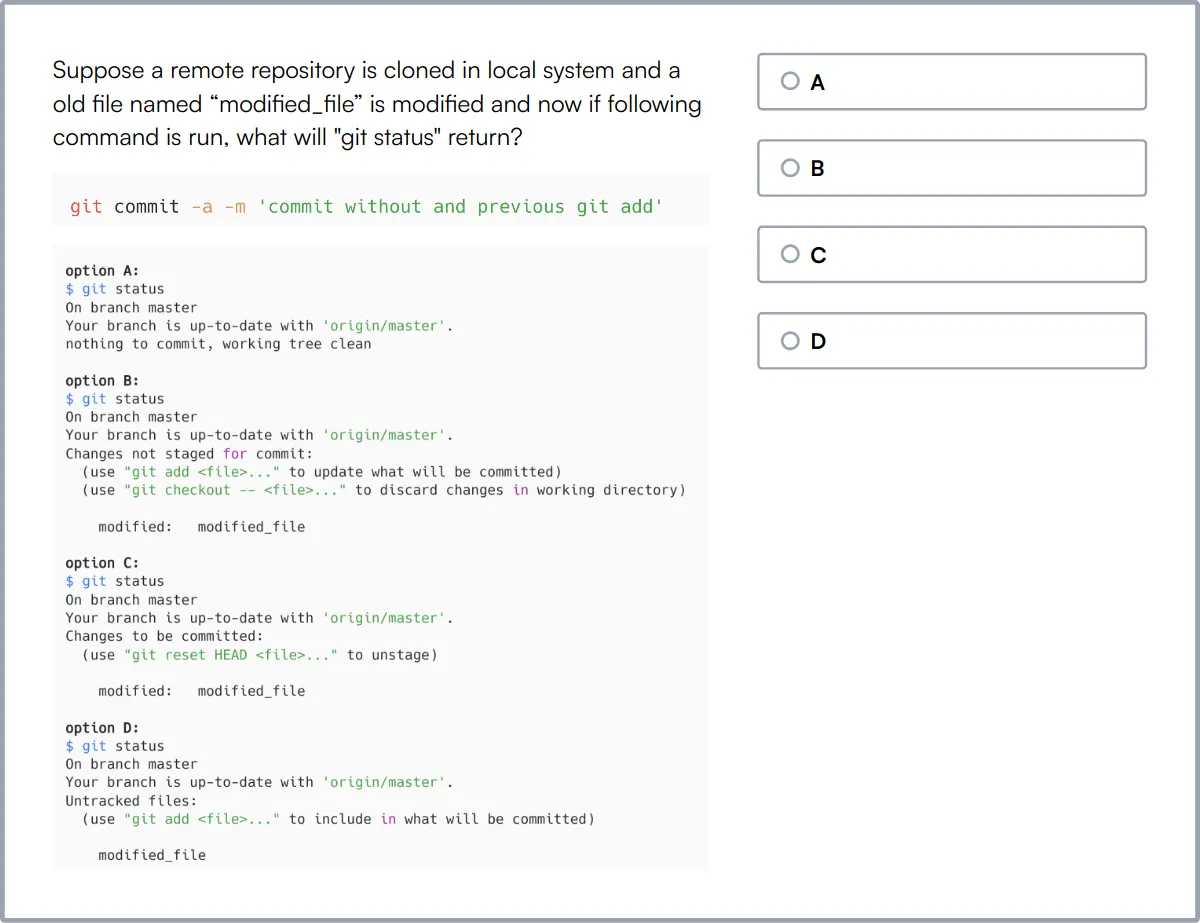
REST API Test
Our REST API Test evaluates a candidate's understanding of RESTful APIs and their ability to create, interact, and test them.
The test assesses their knowledge of REST principles, HTTP methods, status codes, and best practices. It also evaluates their skills in API design and backend service implementation.
High-scoring candidates demonstrate strong abilities in designing and integrating APIs, ensuring efficient and secure data exchange.
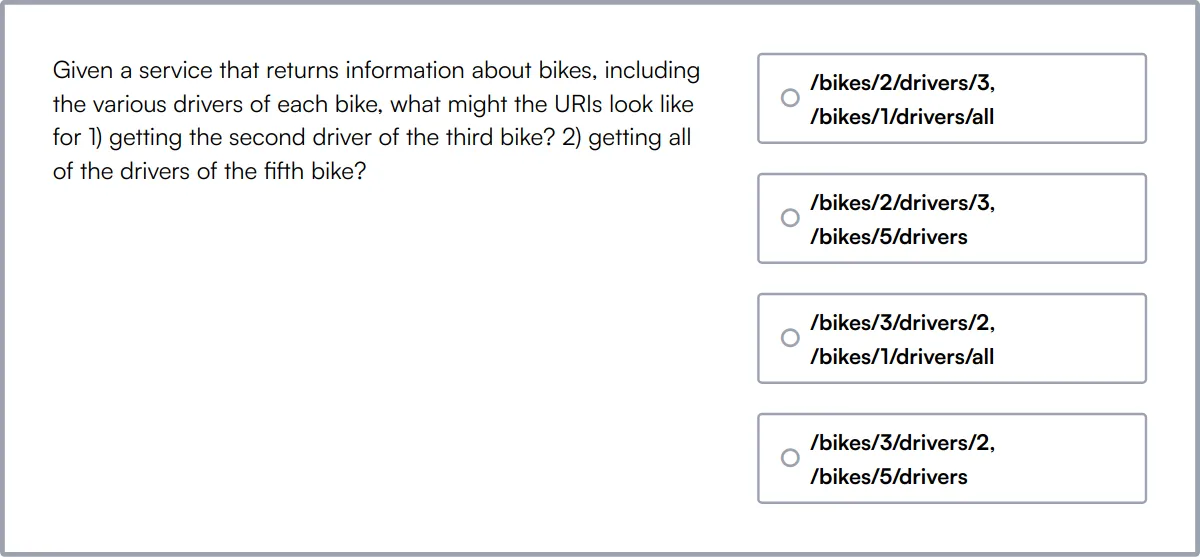
Summary: The 8 key Full Stack Developer skills and how to test for them
| Full Stack Developer skill | How to assess them |
|---|---|
| 1. HTML/CSS | Gauge how a developer creates a well-structured, user-friendly interface. |
| 2. JavaScript | Assess a developer’s skills in creating interactive, dynamic designs. |
| 3. Backend Languages | Evaluate proficiency in server-side programming and logic implementation. |
| 4. Database Management | Measure how well a candidate queries and manages information in a database. |
| 5. Version Control | Discover how well a candidate collaborates and manages their code. |
| 6. RESTful APIs | Check understanding of creating and integrating well-structured APIs. |
| 7. Web Architecture | Assess knowledge of efficient web structure and deployment processes. |
| 8. Debugging/Testing | Decide if a candidate can locate and solve bugs and errors. |
Full Stack Developer Test
Full Stack Developer skills FAQs
What are the key skills a Full Stack Developer should have?
A Full Stack Developer should be proficient in HTML/CSS, JavaScript, backend languages, database management, version control, RESTful APIs, web architecture, debugging/testing, UI/UX design, cloud services, security practices, agile methodologies, responsive design, soft skills, continuous integration, performance optimization, and SEO fundamentals.
How can recruiters assess a candidate's proficiency in HTML/CSS?
Recruiters can assess HTML/CSS skills through coding tests, portfolio reviews, and technical interviews focusing on layout, styling, and responsive design.
What is the importance of JavaScript in Full Stack Development?
JavaScript is essential for creating dynamic and interactive web applications. It is used both on the client-side and server-side (with Node.js).
How do you evaluate a candidate's experience with backend languages?
Evaluate backend language skills by reviewing past projects, conducting technical interviews, and administering coding challenges that involve server-side logic.
Why is version control important for Full Stack Developers?
Version control, like Git, is important for tracking changes, collaborating with team members, and managing code versions efficiently.
What methods can be used to test a candidate's knowledge of RESTful APIs?
Assess RESTful API knowledge through practical tests, asking candidates to design or consume APIs, and discussing REST principles during interviews.
How can recruiters gauge a candidate's understanding of web architecture?
Gauge web architecture understanding by discussing system design, scalability, and performance considerations during technical interviews.
What soft skills are important for Full Stack Developers?
Important soft skills include communication, problem-solving, teamwork, adaptability, and time management.

40 min skill tests.
No trick questions.
Accurate shortlisting.
We make it easy for you to find the best candidates in your pipeline with a 40 min skills test.
Try for freeRelated posts
Free resources



